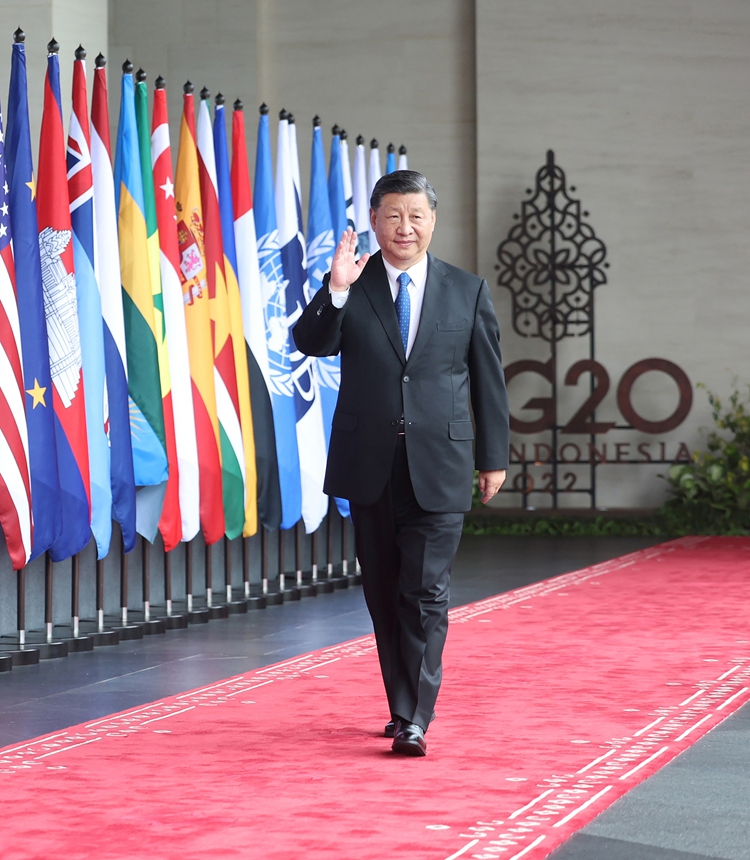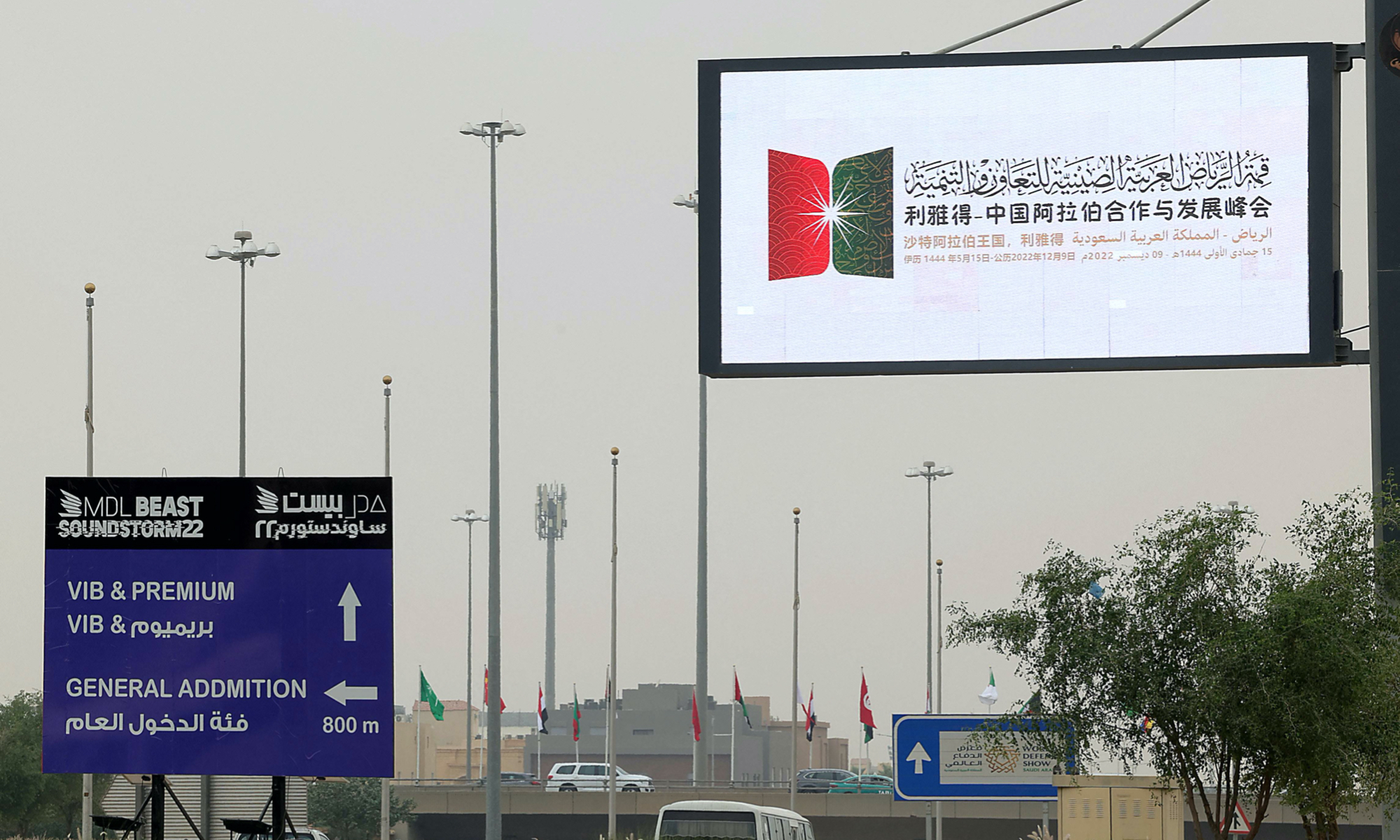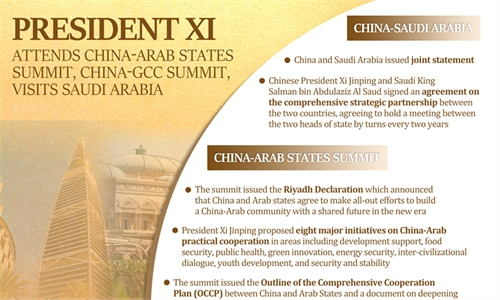IN-DEPTH / IN-DEPTH
Xi's footprints convey China's contribution, injecting stability to a turbulent world
Ukraine crisis, US-EU relations, China-US relations to be the major focus of geopolitical trend in 2023: experts

Chinese President Xi Jinping walks to the venue of the 17th summit of the Group of 20 (G20) in Bali, Indonesia, Nov 15, 2022. Xi delivered a speech titled "Working Together to Meet the Challenges of Our Times and Build a Better Future" at the summit. Photo:Xinhua
The global landscape has, in recent years, gone through profound, complex and turbulent changes since the end of the Cold War. In the eyes of geopolitical observers, the ongoing COVID-19 pandemic, the intensifying geopolitical tensions and the "ripple effects" of the Ukraine crisis have led to growing upheaval in the global financial and economic sectors, while also posing a serious threat to food and energy security. Certain countries continue to blatantly advocate for decoupling, confrontation, and division, further exacerbating an already dire global situation.
In the face of growing challenges, China fully underscores its responsibility as a major country, actively promoting international cooperation and injecting stability into a turbulent world, providing new growth momentum to global governance.
Chinese President Xi Jinping made three trips overseas in 2022 and visited five countries between September and December, offering China's solution, contribution and wisdom to global governance. Such trips are not only proof of the busy schedules maintained by a major country's top leader, but also bear witness to China's undeniable successes in initiating and executing major-country diplomacy, observers said.
Diplomatic footprints
On September 14, 2022, Xi arrived in Nur-Sultan and began his state visit to the Republic of Kazakhstan, and was warmly received at the airport by President Kassym-Jomart Tokayev of Kazakhstan, accompanied by senior Kazakh officials.
The golden autumn brought fair winds and wispy clouds to the city of Nur-Sultan, now called Astana. Atop flagpoles lining the streets, China's red five-starred national flags flew high.
Xi's visit, albeit a brief one, was highly productive and fruitful. Xi and Tokayev reached many important consensus, which will steer China-Kazakhstan relations toward an even more prosperous future.
Over the course of three days and two nights, Xi flew to Nur-Sultan and then Samarkand and, during a 48-hour stay, attended nearly 30 multilateral and bilateral events with twin focuses on security and development. Despite its brevity, the visit had many highlights and resulted in fruitful outcomes. With the visit's facilitation, the expansion of the Shanghai Cooperation Organisation (SCO) took a new step forward. The visit also successfully propelled China's relations with relevant countries to new levels.
"It was the first foreign trip made by President Xi since the start of the COVID-19 pandemic, which was warmly welcomed by host countries and closely observed by the international community. His attendance at the Samarkand Summit of the SCO and his state visits to Kazakhstan and Uzbekistan restarted the head of state's diplomatic visits," Xu Bu, secretary-general of Xi Jinping Thought on Diplomacy Studies Center and president of the China Institute of International Studies, told the Global Times in a recent interview.
On November 14, 2022, Xi flew to Bali, Indonesia, which was also his first foreign trip after the conclusion of the 20th National Congress of the Communist Party of China (CPC).
Xi both attended bilateral gatherings and participated in more than 30 events in six days, which sent out resounding messages on the promotion of global development, while demonstrating China's role as a rational, confident and responsible major country.
In his speech at the G20 summit, Xi called on G20 members to stand with each other in the face of risks and challenges, join hands together, and elevate win-win cooperation to new heights.
Xi's speeches conveyed an important message which highlighted the concept of building a global community with a shared future, emphasizing that countries with different cultural, religious, racial, historical and political systems as well as ideologies can entirely achieve stable mutual relations on the basis of mutual respect, Li Haidong, a professor at the Institute of International Relations at the China Foreign Affairs University, told the Global Times in a recent interview.
"We are in a multipolar world. To let most countries share the dividends of the joint development and cooperation is the main target of restructuring the global order," Li said.
Reviewing past decades characterized by robust economic cooperation and remarkable growth in the region, Xi said in a written speech at the APEC CEO Summit in Thailand that "the Asia-Pacific miracle has been created by all of us working hand in hand and overcoming difficulties and obstacles."
The region owes decades of rapid growth to a peaceful and stable environment, Xi said at the 29th APEC Economic Leaders' Meeting on November 18, 2022. "History has proven time and again that only openness, inclusiveness, and win-win cooperation is the right way forward for humanity," the Chinese president said.
"Xi's series of multilateral and bilateral diplomatic activities have underscored China's international status and influence," Xu said.
Some foreign media outlets described Xi's foreign visits as a "whirlwind of meetings" with US allies especially after Xi met face-to-face with a number of foreign leaders at the G20 summit including those from Australia, France, and South Korea. Xi's visit to Saudi Arabia in December 2022, also raised the question among US observers as to whether China is becoming a superpower alternative to the US in the Middle East.
President Xi visited Saudi Arabia from December 7 to 10, 2022, which not only yielded fruitful results in the economic and trade sectors but also demonstrated that China will increasingly contribute to peace in the strategically important Middle East while continuing to play the role of a contributor to regional development.
Compared with relations between the US and Arab countries, China's relations with said countries are based on equality and mutual respect with honesty at the core, unlike the US which brings ideological bias into its interactions with other countries, some experts said.
"And more Gulf countries understand that when the US mentions 'security,' it has become insecure for them while China-proposed ideas promoting peace and development are much more popular and welcomed," Wang Guangda, secretary-general of the China-Arab Research Center on Reform and Development at Shanghai International Studies University, told the Global Times in a previous interview.

A billboard for China-Arab States Summit is seen on December 7, 2022 in Riyadh, Saudi Arabia. Chinese President Xi Jinping arrived in Riyadh on December 7 to attend the China-Arab States Summit, the China-GCC Summit and to pay a state visit to Saudi Arabia. Photo: VCG
Forward looking
China greatly advanced its diplomatic agenda in 2022, with head-of-state diplomacy setting the pace for the country's overall diplomatic work, which was highlighted by one home-ground event, two major initiatives, and three important visits, former Chinese foreign minister Wang Yi said in December when reviewing the country's diplomatic work in 2022. Wang is currently the director of the Office of the Foreign Affairs Commission of the Communist Party of China (CPC) Central Committee and a member of the Political Bureau of the CPC Central Committee.
Experts believe that the overall success of China's diplomatic efforts helped China navigate complex global and regional issues, consolidate consensus, and strike a balance in maintaining strategic stability in its relations with other major countries such as the US and Russia.
Since the APEC 2023 meeting of economies will be hosted by the US and the G20 Summit will be hosted by India later in 2023, Chinese observers, who have closely followed the Chinese president's diplomatic footprints, predict that major issues and questions such as the Ukraine crisis, relations between major powers such as US-EU relations and China-US relations will continue being the focus in line with the current geopolitical trend.
"In 2023, the global situation will focus on two major topics - security and development. The US will focus on major-power competitions and continue seeking to maintain its hegemony, bringing new challenges to major-country relations," Xu said.
It remains to be seen whether the US-Russia relations, the China-US relations and the US-EU relations will be more volatile or moderate. But either outcome will have a significant impact on global peace and development, he said.
Also, Russian President Vladimir Putin said during a video conference with Xi at the end of 2022 that he looks forward to having an in-person meeting with Xi when the latter is on a "state visit to Moscow in the spring of 2023," TASS reported.
Wang Yi, the former foreign minister, also said in the review of China's 2022 diplomatic work that the head-of-state diplomacy will reach a new climax in 2023. With the adjustment and optimization of China's epidemic measures, Chinese experts also expect more renewed people-to-people exchanges between China and the rest of the world, creating more opportunities for face-to-face communication and cooperation.
"In 2023, China will actively expand its global partnership featuring equality, openness, and cooperation, and promote the building of major-country relations featuring peaceful coexistence, overall stability, and balanced development," Xu said.
This includes China deepening strategic mutual trust and mutually beneficial cooperation between China and Russia, and cement the China-Russia comprehensive strategic partnership of coordination. Meanwhile, China will follow through on the common understandings reached between the Chinese and US presidents, strive to recalibrate the China-US relationship, and bring it back on the right track, according to the Chinese Foreign Ministry.
China will take a clear stand against all hegemony and power politics, fighting back against external forces' attempts to interfere in China's internal affairs, and firmly safeguard national sovereignty, security, and development interests, Xu noted.
"It will also actively advocate for the common values of all mankind and promote a new type of international relations in implementing the Global Development Initiative and the Global Security Initiative that China has proposed," he said.



